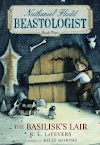Okay, that title should probably really be, On Writing THIS Novel, since each one of them ends up needing something a little different.
But basically, since it is the beginning of a new year and I am starting a new novel, I thought it might be fun/interesting/entertaining to kind of do a loosey-goosey year long workshop and show what tools I use when writing a novel and when I apply them and what I do when I get stuck. Some of this stuff is elsewhere on the blog, but this will present everything in (relative) chronological order.
Or is that too writerly oriented for the readers who stop by here? Maybe I’ll put up a poll to see…
Right now I’m kind of puttering in the pre-writing stage. I’m giving myself a couple of weeks off of the actual producing pages part, but I’m getting ready in other ways, mostly seeding the ground of my subconscious.
First, of course, is to clear the decks of all the detritus of the last book, file away all my loose papers and notebooks and mss printouts. Not only is this good feng shui and organizational practice, it’s like erasing the chalkboard in my writing brain.
Next, I gather all the research materials I know I’ll need. I will always need more, but I won’t know which ones until I get farther in. I begin reading the research books and taking notes. I also go around the house looking for and collecting any and all random notes I may have made about this particular book and read through them once.
I also usually have a vague kernel of a sense of my main characters which I will be able to dig around in and coax into some sort of personage. Although with this particular book, I do have a decent loose sense of who they are as people since they were secondary characters in the last book. This is also the stage wherein I pull out two fresh, shiny unused notebooks. Not sure why I always start with two; sometimes one is for my official ideas and the second one is for playing around with ideas, or sometimes one is for the stuff I know is absolute, not-changeable, and the other is more of an evolving canvas.
Even though I still consider myself to be in the pre-writing phase, the next thing I need to do is to get a sense of the shape and heft of the book. Some people determine that as they go along but I find it really helps to get it firm in my mind now. Part of this may be because I write books of such different lengths and complexities, from 20,000 words to 135,000 words, long, complex books with five acts and lots of twists versus short, early books with linear plots, only a few layers, and a handful of twists. It’s like knowing whether you’re going to make a single, layer 8” x 8” cake or a triple layer wedding cake. Knowing that up front helps my brain gather the materials it will need to create something of that magnitude, or conversely, ignore things that are less central to the smaller sized story.
The tool I use for this is a template I’ve adapted from Blake Snyder’s SAVE THE CAT book, which I highly, highly recommend. At this early stage of the process, this is the perfect template for me as it is vague enough that I don’t feel forced to ink in actual scenes and turning points yet, it mostly just reminds me what each section of the book should feel like and encompass. A brainstorming template, if you will. And while it might seem a bit left-brained to bring in at this stage, I have learned that by seeding some soft, left-brained stuff in early, it actually becomes incorporated by my right brain's more creative process.
The template looks something like this:
Setup 1-40
Catalyst 48
Debate 48-100
Break into Two 100
Fun and Games 100-200
Midpoint 200
BadGuys Closing In 200-300
All is Lost 300
Dark Night of Soul 300-340
Break into Three 340
Finale/Climax /Resolution 340-400
Those are the target page numbers I’m using for a 400 page mss, but if you were working on a 50,000 word novel, you’d just cut those numbers in half. Next time I’ll show you how I fill that in and begin massaging it into the material for the book.
And what about you guys? Do you have a pre-writing phase to your process or do you just jump in? If so, what does it include? Do you have a new book you’re starting this year? An old one you’ve vowed to tackle? Care to tell us about it…



















